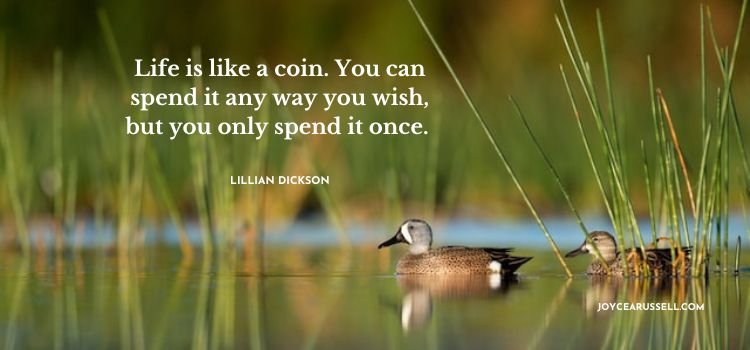In the theater of life, our mindset takes center stage, dictating the plot and shaping our journey. It's not just about thinking positively. But about embracing a world of possibilities, growth, resilience, abundance, empowerment, openness, and even the rare, fixed mindset. Each of these mindsets we adopt influences our lives in distinct ways.
In this blog post, we will embark on a fascinating exploration of what's best about these mindsets. We will uncover their unique attributes and how they can impact your life. Master these mindsets and you can unleash your potential. So, join us on this journey of self-discovery and personal growth, where the power of your mindset knows no bounds.
Positive mindset.
A positive mindset is a mental attitude characterized by hope and an optimistic and constructive outlook. It challenges your limiting beliefs, helping you navigate the uncertainties of life with grace. Regardless of the encounters or circumstances you may face. It involves focusing on the bright side of life and cultivating a belief in your ability to overcome obstacles.
This mindset is rooted in the understanding that setbacks and failures are temporary and can serve as valuable learning experiences. A positive mindset enables individuals to approach life with resilience, gratitude, and a focus on solutions rather than problems.
One key aspect of a positive mindset is maintaining an optimistic perspective. People with a positive mindset tend to view challenges as opportunities for personal and professional development. This belief allows them to tackle difficult situations with confidence and increased self-esteem. A positive mindset involves a strong sense of self-worth. Allowing individuals to see the value they bring to their lives and the lives of others.
Gratitude is another essential component of a positive mindset. Recognition and appreciation for the positive aspects of life, even in the face of hardship, can have a profound impact on your mental well-being. Grateful individuals tend to focus on the good things that they have, adopting a sense of contentment and happiness. Moreover, a positive mindset encourages individuals to engage in positive problem-solving. Seeking solutions and taking action to address problems rather than dwelling on negativity or self-doubt.
Growth mindset.
A growth mindset is a belief system that fosters a passion for learning and development. Individuals with a growth mindset understand that abilities and intelligence can be developed through dedication and hard work. They embrace challenges, view failures as opportunities for growth, and persist in the face of setbacks. In a growth mindset, effort is seen as the path to mastery, and they believe that improvement is always achievable.
One illustration of a growth mindset can be seen in a student who, when faced with a difficult math problem, doesn't give up when they can't solve it immediately. Instead, they keep trying, seek help, and continue to practice until they grasp the concept. They understand that their abilities can improve with practice and effort, and they don't see their initial struggle as a sign of inadequacy. This attitude of perseverance and a willingness to learn is a characteristic of a growth mindset.
In a professional setting, an employee with a growth mindset may take on new projects and tasks that push their boundaries. They see these challenges as opportunities to learn and develop their skills, even if it means making mistakes. They understand that making mistakes is a natural part of the learning process and that these mistakes can lead to valuable insights and improvements. This employee's willingness to step outside their comfort zone and embrace challenges is an example of a growth mindset in action.
A growth mindset encourages a focus on personal growth. Characterized by a commitment to learning and the understanding that effort and perseverance are fundamental to personal and professional development. Individuals with a growth mindset see failure as a stepping stone, not a roadblock.
Resilience mindset.
A resilience mindset enables individuals to face trials in life with a sense of strength and adaptability. It is the mental and emotional fortitude that permits people to bounce back from setbacks and misfortune. This mindset prepares individuals to face life’s storms. Emerging stronger and more determined than ever. Here are three ways in which a resilience mindset helps a person navigate challenges:
People with a resilience mindset understand that challenges and difficulties are a natural part of life. Instead of avoiding or fearing adversity, they embrace it as an opportunity for personal growth. When faced with setbacks, they remain steadfast, maintaining a belief that they can overcome hurdles. This outlook allows them to approach challenges with a sense of determination and optimism, knowing that they can learn and evolve through the experience.
Resilience involves emotional regulation, which helps individuals manage stress and anxiety during tough times. People with a resilience mindset are less likely to become overwhelmed by negative emotions. They are better prepared to stay calm and composed as they face adversity. This emotional balance enables them to think more clearly. Make rational decisions and find effective solutions to their problems, even in stressful situations.
A resilience mindset encourages a positive approach to challenges. Rather than being defeated by setbacks, resilient people use them as opportunities to learn and grow. They reflect on their experiences, adapt their strategies, and develop new skills. Over time, they become better equipped to handle future challenges. They've acquired valuable knowledge and coping mechanisms from their past encounters with adversity. In this way, a resilient mindset helps people endure tough times and furthers personal development and a greater sense of self-confidence.
Abundance mindset.
An abundance mindset isn’t just about wealth. It is characterized by the belief that there are limitless opportunities, resources, and possibilities to be shared among individuals. This mindset encourages generosity, gratitude, collaboration, and prosperity in all aspects of life.
An abundance mindset allows individuals to recognize and seize opportunities they might otherwise overlook. When you believe that opportunities are abundant, you become more open to exploring new ventures, taking risks, and making the best of the circumstances. This openness can lead to personal and professional growth, as you actively seek out and create opportunities that align with your goals and aspirations.
People with an abundance mindset tend to approach challenges and problems with a more constructive and creative perspective. They view difficulties as opportunities to learn and innovate, rather than as insurmountable obstacles. This mindset encourages a proactive problem-solving approach. Which can lead to more effective and innovative solutions to issues, both big and small.
Embracing an abundance mindset in your interactions can boost healthier and more harmonious relationships. When you believe there's enough abundance of love, trust, and goodwill to go around. You're more likely to approach relationships with generosity, kindness, and a willingness to collaborate.
Empowerment mindset.
An empowerment mindset is a powerful attitude that enables individuals to take control of their lives and actively work to change their circumstances. It instills confidence and self-belief, allowing you to pursue your dreams and passions with unwavering determination. Promoting a sense of agency, self-worth, and a practical approach to problem-solving.
Here are three ways in which having an empowerment mindset can lead to positive changes:
An empowerment mindset encourages individuals to own their actions, decisions, and outcomes. Instead of feeling like victims of their circumstances. Those who have this mindset recognize that they have the power to shape their destinies. They take responsibility for their choices, which enables them to make more intentional and constructive decisions. Acknowledging that they are in the driver's seat of their lives, they can begin to implement changes that align with their goals and aspirations.
People with an empowerment mindset are better prepared to face problems and setbacks. They view difficulties as opportunities rather than obstacles. This resilience allows them to adapt to changing circumstances and find creative solutions to problems. They understand that difficulties are a part of life and can be navigated. With the right mindset and a proactive approach, ultimately leading to a transformation in their circumstances.
The empowerment mindset is characterized by setting clear goals and taking consistent, focused action to achieve them. Those possessing this mindset don't simply wait for change to happen; they actively work toward it. By setting specific, achievable objectives and following through with deliberate steps, they can make significant progress in altering their circumstances.
Open-mindedness mindset.
Open-mindedness is the gateway to new perspectives, ideas, possibilities, and information. What is best about this mindset is that it encourages critical thinking, intellectual curiosity, creativity, and adaptability. Enabling you to thrive in a rapidly changing world.
An open-minded mindset encourages continuous learning and personal growth. It acknowledges that you don't have all the answers and that there is always room for improvement. Being receptive to different viewpoints and information, individuals with an open mind can expand their knowledge and develop a deeper understanding of the world around them. This constant learning enriches their lives and allows them to adapt more effectively to changing circumstances.
Another exceptional aspect of an open-minded mindset is its ability to promote empathy and understanding. Open-minded individuals are more likely to bridge divides, resolve conflicts, and build connections with people from diverse backgrounds. This empathy and understanding contribute to unity and cooperation, promoting a more inclusive and compassionate world.
Additionally, an open-minded mindset is a catalyst for innovation and creativity. By being open to unconventional or unexplored ideas, individuals break free from the constraints of predictable thinking. This mindset encourages them to challenge the status quo and seek renewed solutions to old problems. The result is a culture of innovation that drives progress and positive change in various fields, from science and technology to art and business.
Fixed mindset.
While predominantly seen as limiting, a fixed mindset has its merits. It can provide stability and focus for some situations. The key is knowing when to embrace it and when to transition to a growth mindset for personal development. In contrast to a growth mindset, a fixed mindset is marked by the belief that abilities and intelligence are static and cannot be changed. Individuals with a fixed mindset may avoid challenges to protect their self-esteem and see failures as a reflection of their inherent limitations.
A fixed mindset can lead to a fear of failure. When individuals believe their abilities and intelligence are static, they tend to avoid taking on challenges or risks because they fear making mistakes or falling short of expectations. This fear of failure can result in missed opportunities, as individuals remain within their comfort zones.
A closed mindset can lead to a lack of adaptability. People set in their ways and resistant to change, may struggle to adjust to evolving circumstances. This inflexibility can hinder their ability to deal with difficulties. They are less likely to embrace new ideas or methods that could lead to solutions. In professional settings, resistance to change can limit career advancement, as adaptability and innovation are often highly valued traits.
A fixed mindset can strain relationships. Individuals with this mindset may be less open to considering the viewpoints and feelings of others, leading to misunderstandings and conflicts.
My Final Thoughts.
I believe positivity to be the grandfather of all mindsets. There are many other great mindsets, but positivity makes them all exponentially better.
For more information, read these posts.
Why Your Mindset Is Everything.
Successful Days Lead To A Successful Mindset.
Thank you for taking the time to read this post.






















